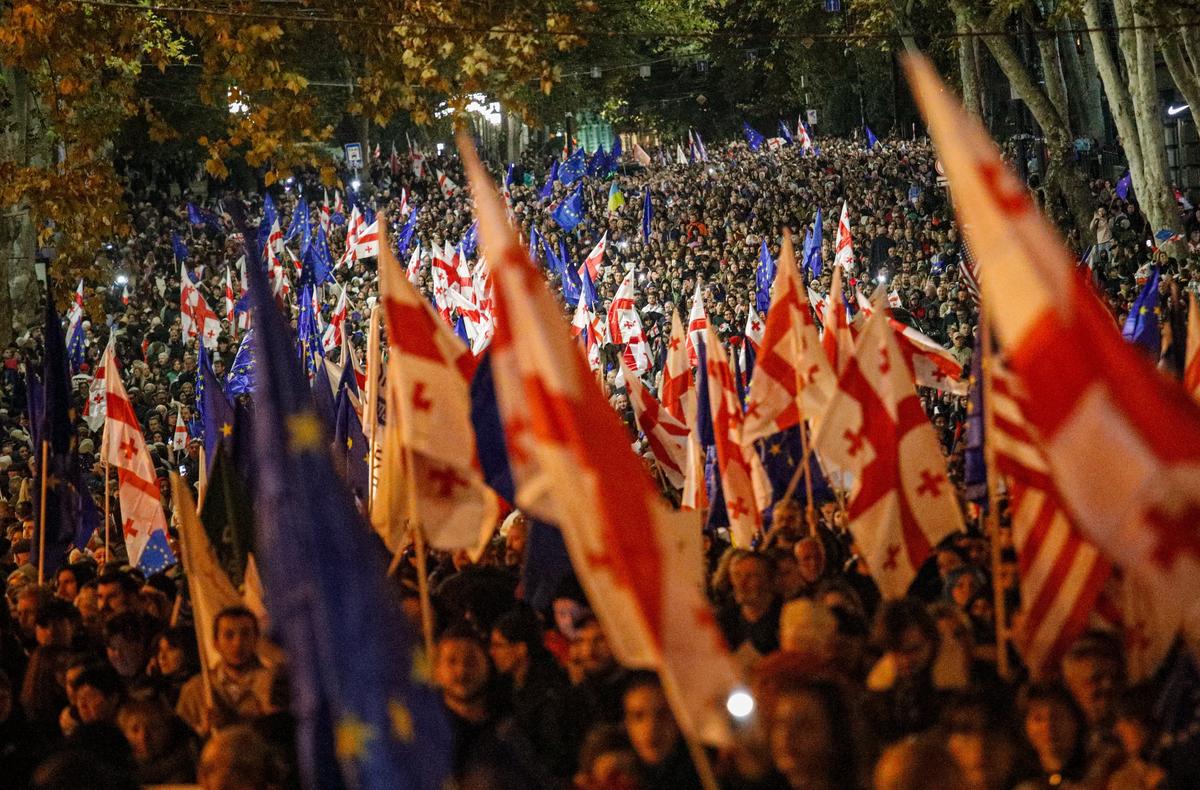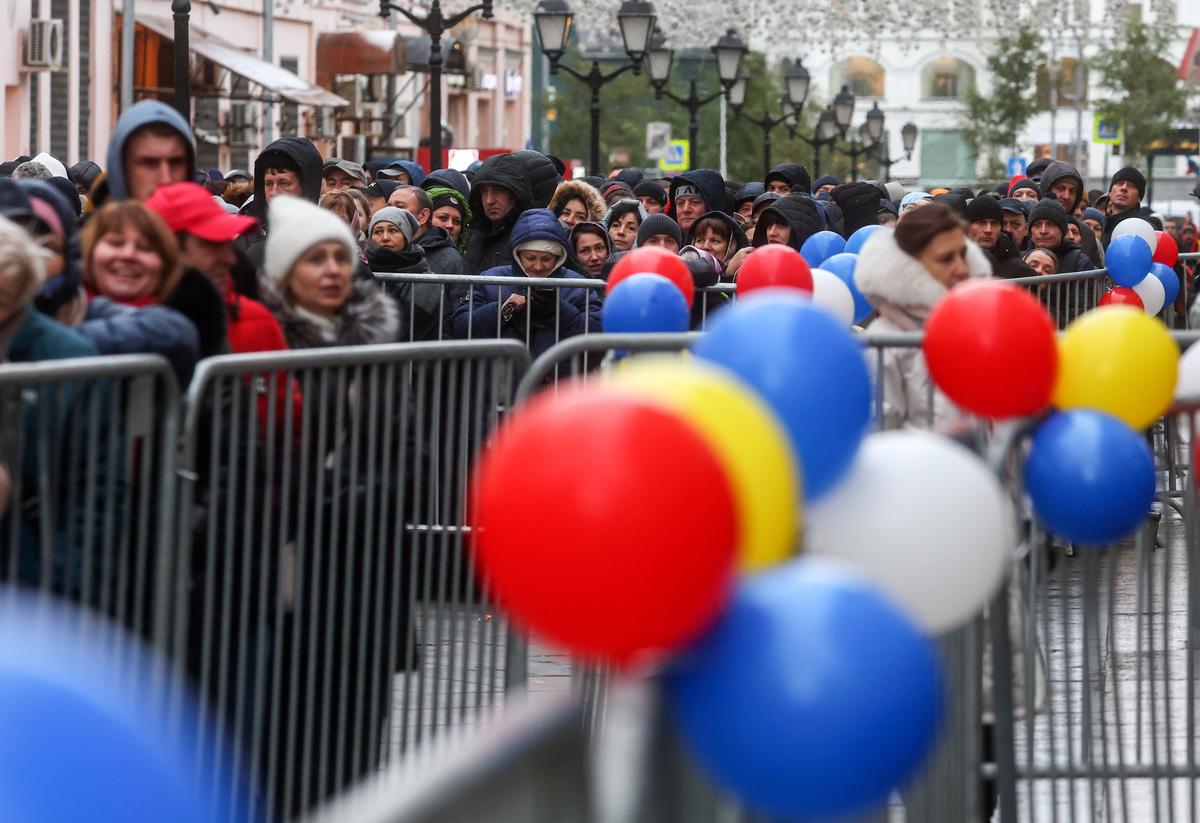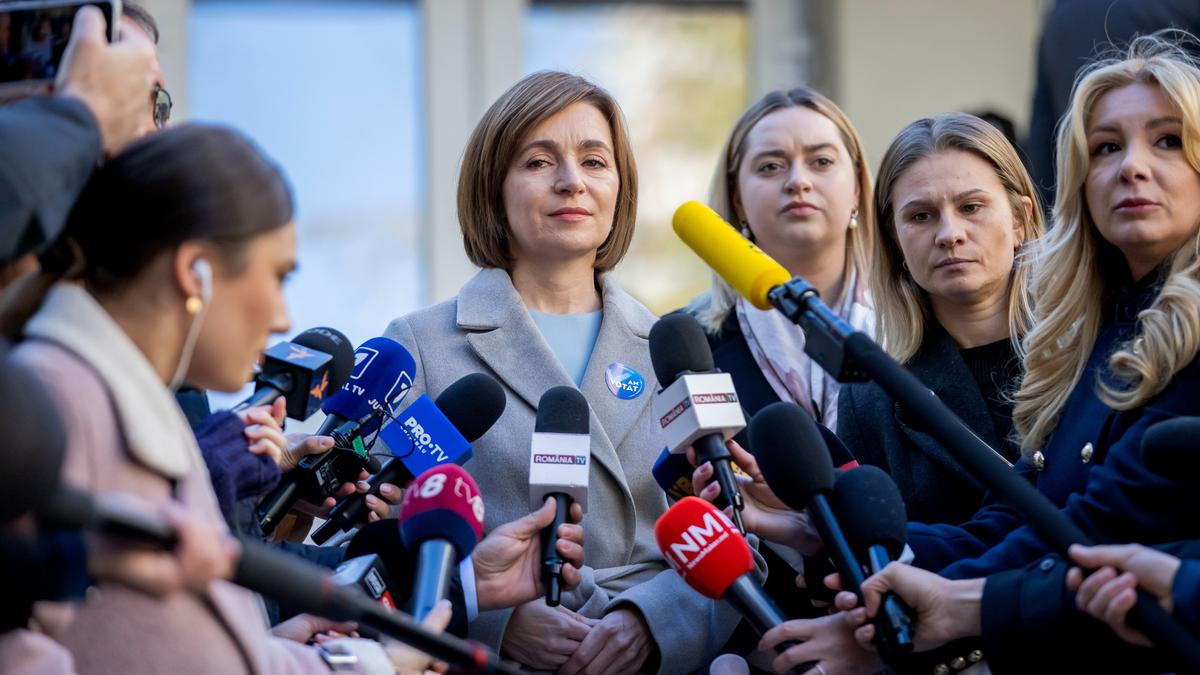The results of the Moldovan presidential election are historic not just for Moldova, but for the region and Europe as a whole. Having defended her fellow citizens’ pro-European choice, incumbent Maia Sandu’s victory brings us closer to the day when the first post-Soviet country outside the Baltic states will join the European Union.

Kirill Martynov
Editor-in-chief of Novaya Gazeta Europe
In a referendum held in conjunction with the first round of the presidential election, Moldova managed to avoid becoming a Moscow satellite and enshrined its desire to become part of the EU in its constitution. This means that other states in which the Kremlin retains undue interest can also avoid the fate of Belarus under the dictatorial rule of Alexander Lukashenko, which forced it into a “union state” with Russia.
That promises to be difficult for Moldova, but, for now, at least, the country has taken a decisive step in democracy’s favour. Nevertheless, the country remains divided, with strong pro-Russian sentiment. Alexandr Stoianoglo, Sandu’s opponent from the Party of Socialists, won 45% of the vote in the second round, and has already refused to accept the result.
Three key countries which find themselves in a similar situation are all moving in very different directions.
In Armenia, Nikol Pashinyan’s democratic government is trying to tread a careful path between open conflict with Moscow and avoiding Russian control over politics in the country. Pashinyan faces a difficult election in 2026 and Armenians have not forgotten the fate of the disputed region of Nagorno-Karabakh, which passed back to Azerbaijan after more than three decades of Armenian control in September 2023, forcing the Armenian population to flee the region.
On the one hand, many Armenians believe, for good reason, that Baku’s successful military operation to retake Karabakh was only made possible by Russia’s readiness to betray its historical ally. On the other, some blame Pashinyan personally for not fighting to retain the unrecognised republic, with its overwhelmingly Armenian population, which seceded from Azerbaijan in 1991.
Three key countries which find themselves in a similar situation are all moving in very different directions.
These sentiments will be exploited by pro-Kremlin forces, which have long viewed Armenia as little more than a Russian region. To try to ease this pressure, earlier this year Yerevan ordered the FSB border guards stationed at its Zvartnots International Airport, which has become one of the key hubs for migrants from Russia since the start of the war in Ukraine in 2022, to leave the country. Armenia also suspended participation in the Collective Security Treaty Organisation, a Moscow-led military alliance of post-Soviet states which also includes Azerbaijan.
By contrast, Armenia’s neighbour Georgia appears to be signing up to a new version of the Treaty of Georgievsk, the 18th-century agreement that effectively made Georgia a Russian protectorate, which entails both increasing cooperation with Moscow and the introduction of Russian-style laws.
The most infamous example of this was the law on “foreign agents”, the adoption of which caused huge protests, and, once it was forced through parliament, ended with the EU suspending Tbilisi’s candidate membership to the bloc. The country’s relationship with Russia has become central to Georgian politics, with the ruling Georgian Dream party openly calling itself the party of peace, making the argument that should the opposition ever come to power, there would be war with Russia, as in Ukraine.

A pro-Europe rally held in Tbilisi ahead of Georgia’s parliamentary elections, 20 October 2024. Photo: EPA-EFE/DAVID MDZINARISHVILI
Unlike in Moldova, the elections in Georgia went exactly according to the Kremlin’s plan, with rural areas and ethnic minorities supporting Georgian Dream. The pro-European opposition alleged voter fraud and threatened not to recognise the result, but the potential for political mobilisation against Georgian Dream, founded by the country’s richest man, Bidzina Ivanishvili, has dried up. The Kremlin’s geopolitical strategists are probably chalking this up as a fine victory. Georgia is theirs, and they can resume their pressure on Moldova later.
But the main impact of the Moldovan election will be felt in Ukraine. Zelensky’s embattled government has Russian-controlled Transnistria, an unrecognised sliver of Moldovan territory which has seceded from Chisinau, on its southwestern border. Instability in Chisinau and a pro-Russian government would have made the situation significantly worse for Kyiv. Conversely, Moldova’s successful integration into the EU, despite the disputed status of Transnistria, could become a model for Ukraine.
In Ukraine’s case, the hybrid conflict the Kremlin is waging against its opponents in the Post-Soviet Space has long since turned into a full-scale war. Preserving Ukrainian sovereignty will only be possible if a military and political bulwark to Russian aggression can be created by Kyiv in partnership with its European allies. Unlike NATO, the European Commission could still make Ukraine’s accession to the bloc a reality by 2029.
Moldova enjoys a strong historical partnership with Romania, a rapidly growing country with the 13th-largest economy in the EU where the standard of living and GDP increases are largely due to European investment. Talks on unification have long been policy in Chisinau, just as Moldova’s pro-Russian politicians and ethnic minorities have always viewed the prospect as a threat.
Joining the EU would eliminate that need, however — Moldova could remain an independent state, but would be able to engage in joint projects with Romania. Other countries the Kremlin is trying to bring back into its sphere of influence lack the clear counterweight that Bucharest provides to Moldova.
The two rounds of the Moldovan presidential election and the referendum on association with the EU went as expected, with independent Moldovan media reporting numerous attempts to bribe voters to support the pro-Russian candidate. Initially, it looked as though the referendum would show that Moldovans had rejected European integration, and Sandu also trailed her opponent early in the count of second-round votes.

Members of the Moldovan diaspora line up to vote at the Moldovan Embassy in Moscow, 3 November 2024. Photo: EPA-EFE/SERGEI ILNITSKY
But the Moldovan diaspora, whose votes were counted last, played a key role in the final tally, and those Moldovans who live and work in Europe had no doubt about the choice their country should make.
Propaganda claiming that joining the EU would only harm Moldova and lead to poverty and human rights violations is unlikely to convince anyone who can see for themselves the difference in the standard of living between the EU and the Post-Soviet Space.
Stoianoglo supporters have already accused Sandu of being a president for those who have left the country, claiming that Moldovans who remain in the country voted against her. This is how the Party of Socialists hoped to invalidate the election result, as if members of the diaspora automatically lost their voting rights, something, incidentally, that the Kremlin has long dreamed of.
If Russia ever holds a vote for which the result isn’t rigged in advance in the dictator’s favour, Russians abroad could also become a driver of change.
Russian émigrés need to learn from the Moldovan lesson. The diaspora voted for Sandu in such numbers precisely because it knew what was at stake and the election saw people who had previously been uninterested in politics turning out to vote. If Russia ever holds a vote for which the result isn’t rigged in advance in the dictator’s favour, Russians abroad could also become a driver of change.
If there was a government in Moscow that knew how to treat its overseas partners with respect, rather than defaulting to sabre-rattling and murdering its opponents, the post-Soviet political landscape would look very different indeed.
Moscow is losing Moldova, just as it has lost Ukraine, because fewer and fewer people want to live under the arbitrary rule of dictators.
Join us in rebuilding Novaya Gazeta Europe
The Russian government has banned independent media. We were forced to leave our country in order to keep doing our job, telling our readers about what is going on Russia, Ukraine and Europe.
We will continue fighting against warfare and dictatorship. We believe that freedom of speech is the most efficient antidote against tyranny. Support us financially to help us fight for peace and freedom.
By clicking the Support button, you agree to the processing of your personal data.
To cancel a regular donation, please write to [email protected]

